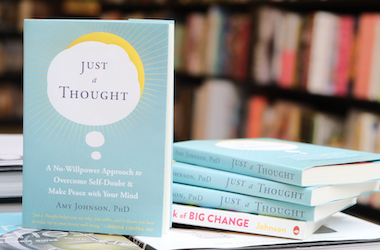Every profession has rockstars.
You know, those people in your field who are as kind and down-to-earth as they come, but in whose presence you feel like a tongue-tied loser.
As a graduate student, one of my professional rockstars was Daniel (Danny, to those who actually knew him) Kahneman.
My field of study was social cognition–how information about social life is stored, processed, represented, and retrieved in the brain. (My dissertation, Induction – Deduction Inference Asymmetry in Linguistic Abstraction, is a real page turner. Don’t all request copies at once.)
I conducted experiments to learn about how we form opinions and make decisions. Professor Kahneman conducted social cognition experiments on judgment and decision making too, but he was exceptionally good at it. His research won him a Nobel prize in 2002.
Dr. Kahneman’s decision making research found that people form opinions and make decisions far quicker than researchers previously believed.
In fact, our judgments are often so quick they are pre-cognitive. His work showed that the bulk of our opinions and decisions are essentially gut responses; they are based on something closer to an intuitive hit than on logic or reasoning.
Of course, we can usually justify our choices and opinions with solid-sounding reasons. But Kahnemans’ work showed that our cited reasons often come after the decision has been made. Milliseconds after, but still after.
So the reasons we provide for why we like what we like, and why we chose what we chose, aren’t exactly accurate. Those “reasons” don’t actually guide our choices. They have other benefits, such as helping us feel like we made solid decisions, reducing later regret, and buying us the confidence and approval of the logical people we’re trying to impress.
But they are not what drives our behavior.
So, what does drive our behavior?
Well, that’s what I study today. Not in a university psych lab but in silence, by insight, and in conversation with all of you.
Kahneman’s research makes even more sense in the broader framework of the universal Principles that describe our human experience.
Spiritual energy moves through us. That formless, pre-cognitive energy takes the shape of experience–thoughts, feelings, behaviors.
The reasons we invent to justify and explain our thoughts, feelings, and behaviors are cognitive. They are thoughts filtered through the computer in our heads called the brain.
So basically, we act largely on hunches and then use our brain to explain our behaviors after the fact.
Why does this matter?
It matters because we tend to take our reasons very, very seriously. Our reasons, opinions, judgments, and beliefs become like little balls and chains. They become the walls of the river caving in on us.
We innocently let our after-the-fact thinking lead us into the same behaviors over and over. So our experiences become less and less varied, less and less creative, more and more cognitive and robotic.
There is enormous benefit to seeing life as a mystery. The learning is in the I-Don’t-Know. That’s where we get to tap into that wide open field of potential before cognitive constraints. Clinging less to what we think we know about our judgments and decisions opens us up to seeing so much more.
The I-Don’t-Know is where insight and deep, lasting change live.
Try looking a little less toward the reasons and thoughts about what you’re doing, and more toward the miracle that actually brings experience to life. And check out the video below to hear a bit more on this.
If you want to be guided toward deep and lasting change by looking less at reasons and more toward the true source of your habitual behavior, please get yourself on the waitlist for The Little School of Big Change.





